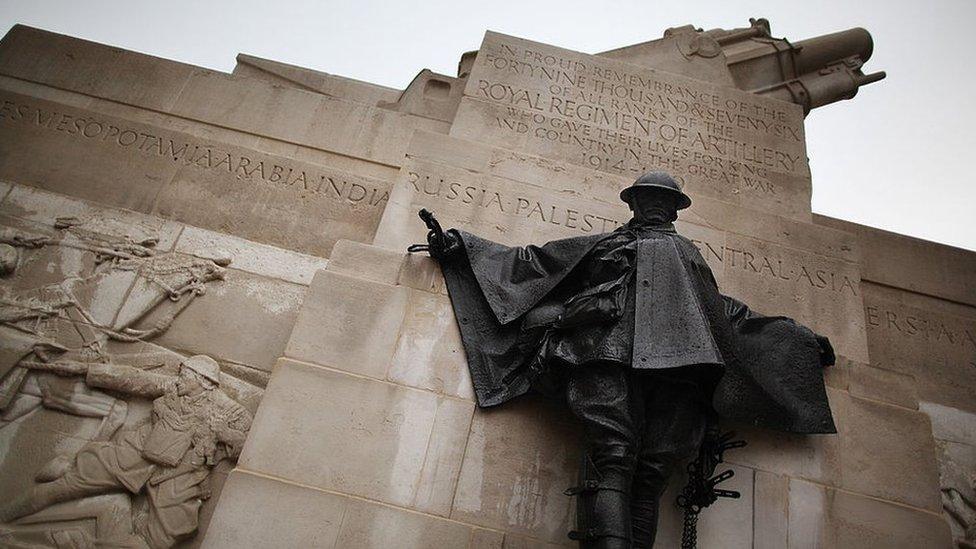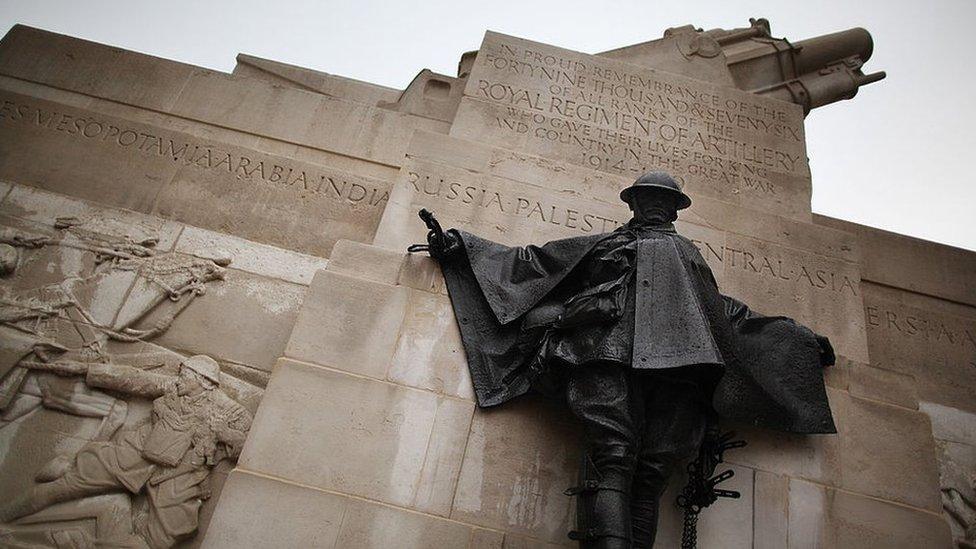Protesters climbing war memorials could face jail and £1,000 fine
- Published

The Royal Artillery Memorial commemorates thousands of soldiers killed in World War One
Protesters climbing on war memorials could face up to three months in prison under plans being proposed by Home Secretary James Cleverly.
Last year No 10 said it would look into giving police new powers after a group of pro-Palestinian demonstrators scaled London's Royal Artillery Memorial.
Now the government has said it intends on making climbing on war memorials a specific public order offence.
Mr Cleverly said scaling memorials was "an insult" and "cannot continue".
He added that a change in the law would punish activists "insulting those who paid the ultimate price for their freedom to protest".
Under the new guidance, an individual could face three months in prison and a £1,000 fine for committing the offence.
The new measure - which will apply in England and Wales - is scheduled to be introduced as an amendment to the Criminal Justice Bill currently going through parliament.
It is part of a wider plan that is set to be unveiled later this week, aimed at tackling disorder at protests, the Home Office said.
The government first said it was considering giving new powers to the police last November.
During protests in London calling for a ceasefire in Gaza, a breakaway group of pro-Palestinian demonstrators were filmed climbing up the Royal Artillery Memorial in Hyde Park Corner.
The monument was built to commemorate the tens of thousands of soldiers from the Royal Artillery who were killed in World War One.
In November, Met Police Commissioner Sir Mark Rowley said protesters' actions were "inflammatory", but not illegal.
He said it was up to the government to consider whether officers should be given more powers to respond to protests.
Related topics
- Published16 November 2023
